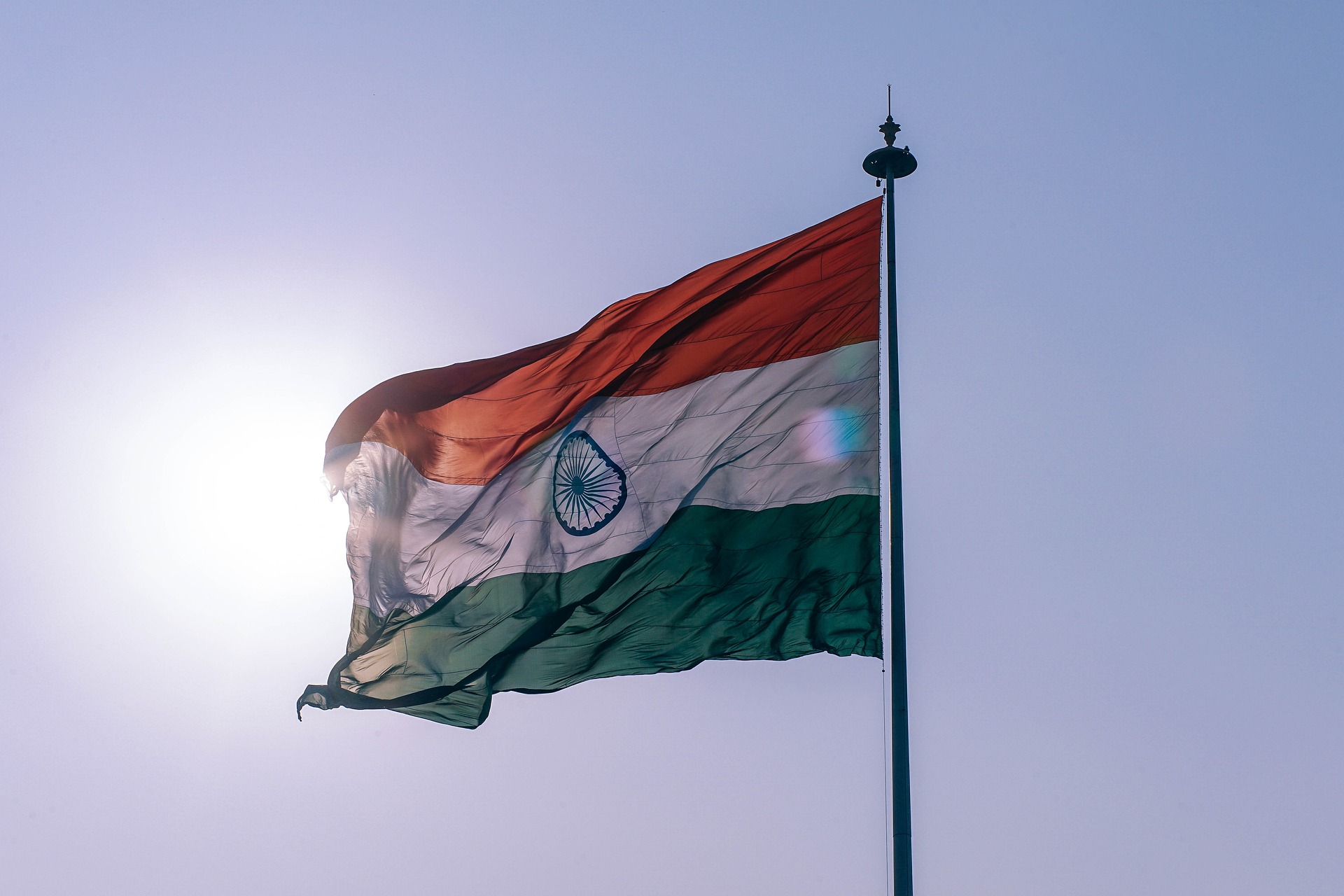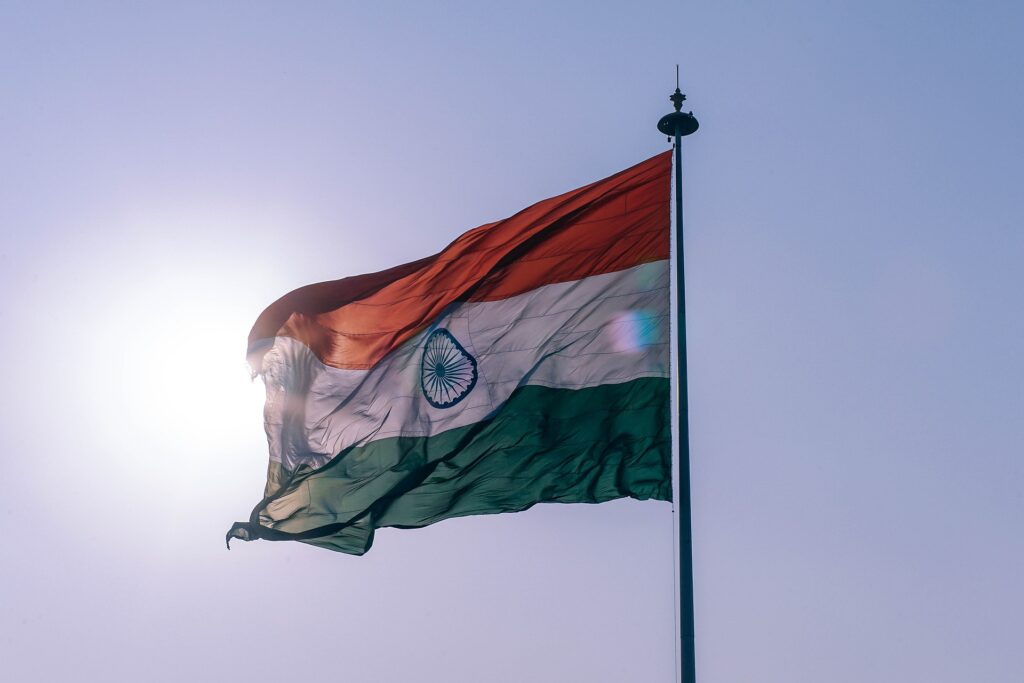 Image: Pixabay
Image: Pixabay
Asia's richest man says India could be responsible for more than 20% of global GDP by 2050. How to combine economic growth and sustainability? The answer is in the sugarcane fields.
According to Gautam Adani, considered the richest man in Asia, India could be responsible for more than 20% of global Gross Domestic Product (GDP) by 2050.
At a conference in Mumbai, Gautam Adani estimated that his country's GDP could start growing by about US$ 1 trillion, every 12 to 18 months, within the next ten years.
According to the billionaire, the energy consumption of India has the potential to increase by 400% by 2050.
{module Form RD}
Adani also said that India's GDP is expected to reach US$ 30 trillion over the entire period, which would represent a jump of almost 10 times compared to the current value.
With this growth perspective, the Indian government and the private sector seek to develop, with special attention, sustainability policies.
In the case of automobiles, for example, initiatives have been adopted to decarbonization.
On October 11, the pilot project for a hybrid flex vehicle was launched in India based on the Corolla model imported from Brazil.
The use of ethanol among Indians has been growing every year. In 2021, global biofuel production grew by 3.6%, with much of this increase attributed to the expansion of capacity in the Asian country.
It is worth mentioning that the country produced twice the volume of 2020, thus becoming the third largest producer in the world, behind only the United States and Brazil.
In addition to contributing to the goals of decarbonization, ethanol is a key player in India's economic expansion.
According to Nitin Gadkari, Minister of Road Transport and Highways of the Asian country, the biofuel it would be a way to increase the Indian agricultural sector from 6% to 8% in the coming years.
In the wake of ethanol is the hydrogen production, showing that the Indian automobile sector has multiple domestic solutions to grow sustainably.
Currently, India is the fifth largest economy in the world with a GDP of US$ 3.5 trillion. “Well before 2030, we will be the third largest economy in the world and then the second largest economy in the world by 2050,” says Gautam Adani.
Brazil will play a fundamental role in India's economic development ambitions, especially with its know-how in biofuels, as the sector sugar energy Brazilian is a world reference when it comes to green energy.
Talk about bioenergy is to enter a vast territory:
- Ethanol;
- Biodiesel;
- Biogas;
- Biomethane etc.
In short, it is the process of generating energy from renewable organic matter, being an alternative to fossil energy sources.
A sugar cane is a protagonist in the world of bioenergy, as it is a culture that can be used in many ways. For example:
Sugarcane juice: used to make first-generation ethanol (E1G). Bagasse is used as a source of electrical energy, while straw is not used.
Sugarcane bagasse and straw: These by-products can be used in the production of second generation ethanol (E2G), also being a process integrated into the manufacture of E1G.
With E2G, it is possible to increase the biofuel production in up to 50% without needing to increase the planting area.
India is the second largest producer of sugar cane in the world, behind only Brazil. Despite its prominent position in the production of the commodity, the Asian country is new to biofuels.
But, in recent years, India has been strengthening ties with the Brazilian sugar-energy sector, which has had an effect.
Even taking the first steps, the Asian country aims to reach a mixture of ethanol in gasoline at 20% (E20) by 2025 – currently the mixture is 10%.
The E20 mixture policy, although it will only be fully implemented in 2025, will take its first steps in 2023, when the sale of E20 will become available at some gas stations in the country.
Brazil is already preparing for the new bioenergy revolution, with the production of E2G and green hydrogen. The call "ethanol reform” will be another step for the Brazilian sugar-energy sector towards decarbonization goals.
In addition to being crucial in global food security, Brazil plays an important role in generating bioenergy through the development of technologies that place the country at the forefront of renewable energy.
Brazil has a natural vocation for the use of bioenergy, as it has great sustainable potential.
It is estimated that by 2050 bioenergy will account for approximately 30% of all energy used in the world.
The economic and social benefits are immense, and Brazil has a great opportunity to expand its global role when it comes to renewable energy.
The two largest sugarcane producers in the world are increasingly closer due to ethanol.
Brazil, which already has extensive experience in the subject, has been offering its experience to the Asian country, which is increasingly consolidating the use of biofuel in its territory, aiming at decarbonization and better interaction with the environment.
Brazilian expertise is assisting India in its efforts to make its more sustainable automotive industry.
Given Gautam Adani's bold economic growth outlook, there is a long way for India to go to grow sustainably.
The challenge is great, however, the Indians have sugar cane as one of the solutions, in addition to the partnership with Brazil, which should continue to yield good results for both countries.
Whether India will actually represent more than 20% of global GDP in 2050, we have no way of knowing, but it is certain that this development requires a sustainable energy matrix, which can be obtained through bioenergy.
Source: datagro











